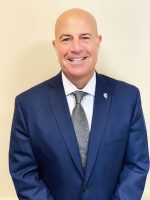 Kids face money management challenges.
Kids face money management challenges.
Financial habits start young. Kids who learn early how to manage their money – even what little they may have – build good habits for financial health and wellness as they grow into adults.
The current economy seems to be split into two groups of people. While some are doing very well, others have been struggling. They live paycheck to paycheck, with no ability to save or plan for the future. The economic onslaught of COVID-19 has widened that gap, sending people who were living on the financial edge into a tailspin, while others have either struggled to keep their heads above water or taken advantage of the downturn in financial markets to make even more money.
Recommended For You
Despite these differences, there is one consistent observation: By and large, it seems that people who were prepared with the skills to manage their financial picture have weathered the adverse conditions the best. Whether having a written budget, or the financial discipline to create and live by a virtual one, we've seen that those people who are taking charge of their financial picture are those most likely to be keeping themselves afloat.
Planning for a crisis can't start in the middle of one. In fact, the best time to plan for a crisis is before one comes up. Knowing which resources you have at your disposal, and which tools and skills you lack, is an important starting point. Creating that plan often starts from within oneself – that personal desire to take control of a situation and make it better. However, not everyone knows how to create that financial plan, and those people will find it more difficult to have a successful financial future.
I think it should start in grade school.
It's shocking that so few of today's school kids aren't being taught how to manage money. Fewer than 20% of states have a formal public-school curriculum that teaches young people how to balance a check book, save money, build credit and stay out of debt (hint: spend less than you make!).
It's therefore no surprise we have a chronic debt problem in our country, because it seems that, around 18 years of age, everyone gets thrown in the deep end of the financial pool without even being taught how to tread water, much less swim.
That's where youth financial products at banks and credit unions can make a world of difference.
There's no better teacher than hands-on training, along with a little guidance from trusted mentors. Youth banking products can be a terrific first step in that process, which allow a child and a parent to walk down a financial education road together. It not only helps the child learn about money but also creates a bonding opportunity – and may even teach the parent a little about money, too.
It starts with something as simple as a savings account, but can grow into checking, certificates of deposit and even credit cards.
Of our 15,000 credit union members at Ocean Financial Federal Credit Union, about 2,000 are under the age of 21. They make deposits and withdrawals using their checking account that comes with the safety net of no overdraft protection, meaning they can't overdraw the account and get into debt. As they grow and become more responsible, we walk them into more adult products that match their financial goals and capabilities.
Our products also come with some features and benefits that resonate with the parents, like a 4% APY on the first $1,000 on new youth savings accounts.
Like anything else we do for kids, whether it's a pair of sports cleats or a checking account, you can't fit them into something built for an adult. Seeking out a financial institution that offers child-specific products can help you help your kids build good financial habits that will last a lifetime.
 Joe Tedesco
Joe Tedesco Joe Tedesco is President/CEO of the $349.5 million Ocean Financial Federal Credit Union based in Oceanside, N.Y.
© Touchpoint Markets, All Rights Reserved. Request academic re-use from www.copyright.com. All other uses, submit a request to [email protected]. For more inforrmation visit Asset & Logo Licensing.






